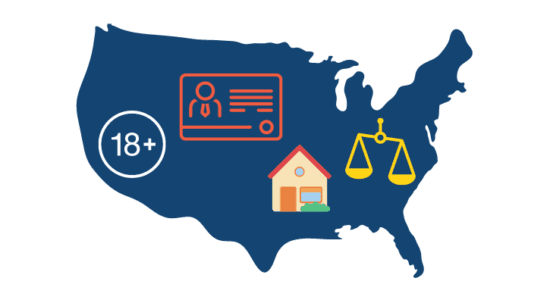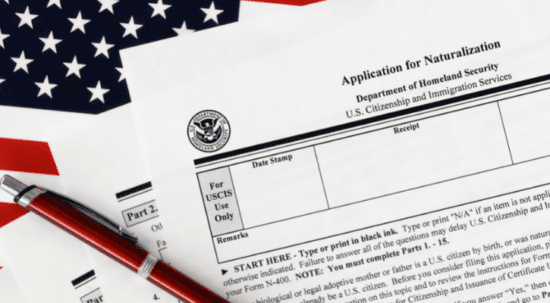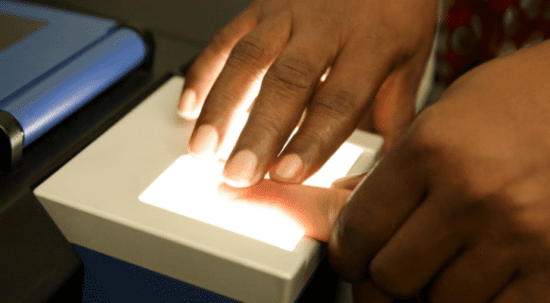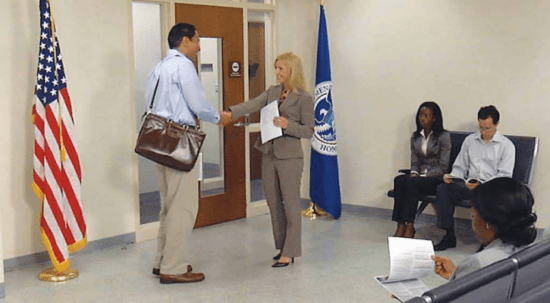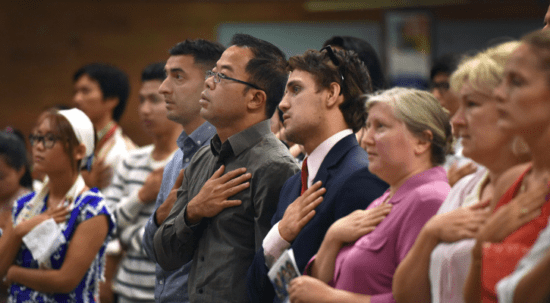Naturalization interview
Some people may not have to take all of the parts of the English and civics test in the naturalization interview. USCIS gives certain people exceptions and accommodations. You can make a request when filing Form N-400.
An exemption is when you are allowed to not do something you would normally have to do.
An exception is something that does not follow a rule. They are both used in the same way here.
Who is eligible
You may be able to get an exception depending on your age, length of permanent residence, and if you have a medical disability.
| Exception | English test | Civics test |
|---|---|---|
| 50+ age & 20+ years of permanent residence |
Exempt – do not have to take | Still required but you can take it in your first language |
| 55+ age & 15+ years of permanent residence |
Exempt – do not have to take | Still required but you can take it in your first language |
| 65+ age & 20+ years of permanent residence |
Exempt – do not have to take | Still required but you can take it in your first language with fewer question options |
| Medical disability or impairment | Exempt – do not have to take | Exempt – do not have to take |
English exemption
The English test is a part of the naturalization interview. It shows you can speak basic English. You may not have to take this test if you have reached a certain age and lived in the United States long enough.
50/20 exception
You do not have to take the English test if you:
- Filed your application when you were 50 years of age or older
- Lived in U.S. for 20 years or more as lawful permanent resident with Green Card
55/15 exception
You do not have to take the English test if you:
- Filed your application when you were 55 years of age or older
- Lived in U.S. for 15 years or more as lawful permanent resident with Green Card
| If you meet the 50/20 or 55/15 exception you still must take the civics test but you can take it in your preferred language. You must bring your own interpreter. |
Civics test
The civics test is part of the naturalization interview. It shows you understand the U.S. government and history. You may be able to take a different version of the test if you have reached a certain age and lived in the United States long enough.
65/20 special consideration
You will receive special consideration in the civics test if you:
- Filed your application when you were 65 years or older
- Lived in U.S. for 20 years or more as lawful permanent resident with Green Card
If you qualify for special consideration:
- You can take the civics test in your preferred language. You must bring your own interpreter.
- You only need to study 20 civics questions instead of 100. You must answer 6 out of 10 questions from the list of 20 to pass.
Disability exemption
You can get an exemption from both the English and civics tests if you have:
- Certain physical or developmental disabilities or medical impairments.
- A medical disability that affects your ability to show you understand English and U.S. civics.
Disability accommodations
USCIS also offers accommodations to people with medical disabilities or impairments.
An accommodation is a change that aims to fairly help people with disabilities get the same results as people without disabilities.
You can request certain changes to the naturalization test such as:
- Get more time to take your test
- Take breaks during the test
- Take the writing test orally
- Take reading test in large print or braille
- Be provided a sign language interpreter
- Allow a family member, legal guardian, or representative to attend your interview
- Take the test in your home
Continuous residence exemption
You may be exempt from the continuous residence requirement to apply for citizenship if you are working abroad for one of the following organizations:
- U.S. government or military
- American institutions of research
- American firm
- Media organization
- American religious organization
You must file Form N-470 to count your time abroad as continued residence in the USA.
Asking for an exemption or accommodation
You can ask for a citizenship test exemption or accommodation in your Form N-400 citizenship application.
Exemption based on age and length of permanent residency
- Answer yes to Question 13 in part 2 of your application
Exemption based on a disability or mental impairment
- Answer yes to Question 12 in part 2 of your application
- You must also file Form N-648
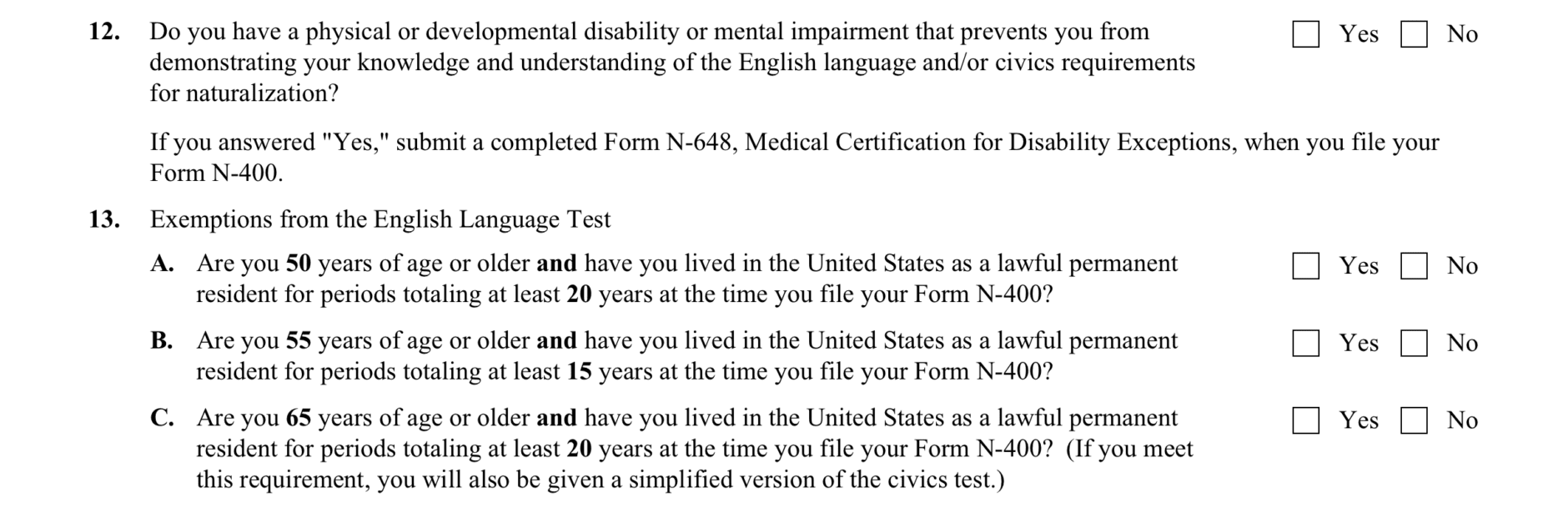
Accommodations based on disability or mental impairment
- Answer yes to Question 1 in part 3 of your application
- You can also submit an accommodation request online or ask for accommodations with your field office

Legal help recommended
If you think you might qualify for an exemption or accommodation, it is recommended to get legal help filling out your application. It is good to have someone who can speak up for you during the citizenship process.
Many organizations and lawyers offer free or low-cost legal help.
Interpreter
If you qualify to take the civics test in your first language, you must bring your own interpreter to your interview unless they state other options are available. Your interpreter must speak your first language and English fluently.
Your interpreter does not have to be trained or certified. In general, your interpreter should not be someone who is involved in your case. Your attorney, legal representative, or witness cannot interpret for you.
You and your interpreter will be asked to complete and sign Form G-1256 before your interview.
Next: Learn how to apply for U.S. citizenship
The information on this page comes from USCIS, USA.gov, and other trusted sources. We aim to offer easy to understand information that is updated regularly. This information is not legal advice.


